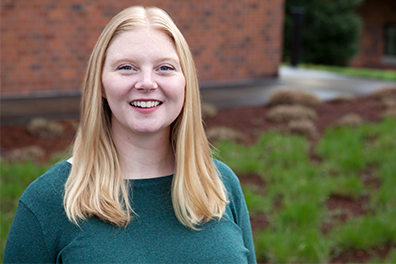Samantha Bussan’s Three Minute Thesis
Can Conservation Grazing Maintain Habitat Quality for Butterflies?
Grassland butterflies have suffered massive habitat loss due to human activities. In the South Puget Sound, less than three percent of the original extent of prairie remains. Much of the remaining grassland habitat is on private land, which is often managed for dairy farms and cattle ranches. Therefore, it is essential to understand how to promote butterfly habitat on working lands. Conservation of sensitive species often depends on the actions of many private landowners, so it is important to understand how to incentivize landowners to implement conservation grazing strategies. My work is focused on both the ecological and sociological aspects of conservation in grazed land.
To answer my ecological questions, I am studying butterfly behavior and movement rates as a proxy for habitat quality. I am comparing butterfly behavior and movement rates under “conventional” grazing (continuous grazing with no spring deferment period), “conservation” grazing (rotational grazing with a spring deferment period), and native upland prairie (ungrazed). To answer my sociological questions, I conducted a survey of livestock producers in western Washington to understand what are the largest barriers and best incentives to promote conservation grazing strategies on private land.

